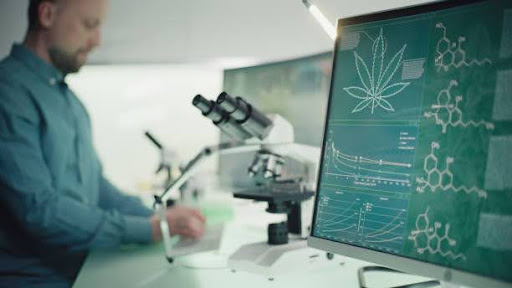
For any cannabis company’s claimed valuation, patents are becoming increasingly significant. Most cannabis companies are identifying ways to differentiate their business from competitors in which patents will play an important role in order to ensure that competitors cannot duplicate their products or processes. You can book a cannabis patent attorney free consultation for patients who are used to insulating products from direct competition by building temporary barriers that prevent competitors from using the same advantages.
Cannabis companies should build portfolios of patented technology that can be licensed or sold like other assets or used to enhance their valuation for any acquisition or investment. However, not all patents are created equal. They are supposed to be issued only for new and useful inventions. However, many conflicts and self-sabotaging policies built into the patent system often result in ‘bad’ patents that would be invalidated if enforced. A cannabis patent attorney’s free consultation can help you understand this better.
These bad patents look like all others at first glance but have no practical value. Meanwhile, highly defensible patents can be practically worthless as they have no commercial applicability. A patent attorney can significantly increase your ability to evaluate the worth of a patent. So here are four main considerations to pay attention to when assessing the valuation of a cannabis patent.
What Do the Patents Actually Cover?
This is a two-step process. The first step is to determine what products and processes are covered by the specific language of the patent claims. Remember that patents are technically dense documents that seem much broader than they really are. Their language and nuanced technicalities of patent law make them difficult for non-professionals to understand. Moreover, even minute changes in language can have huge, enormous consequences on the technology that the patent covers.
The second step in patent interpretation is to identify any hidden limitations in the patent’s scope. For many reasons, a patent’s actual scope may be much narrower than the explicit words of the patent. This usually results from the applicant making arguments or amendments during the lengthy application process, which often lasts several years and involves numerous communications between the applicant and the patent office.
Applicants also often make arguments to distinguish their inventions from previous inventions to convince the patent office to grant them a patent. These arguments, under some circumstances, can dedicate some aspects of the invention to the public and later be used against the patentee if they try to assert their patent rights. Therefore, it is important to determine the patented subject matter when valuing any cannabis patent.
Is the Patented Technology Valuable to the Industry?
Remember that not every patent is valuable. The application and examination process ensures that patents are awarded only for new and useful inventions. However, there is no requirement that the invention be commercially viable. Patents are also issued that have no practical value as no company is willing to make or use that technology or may achieve the same results by simply making minor changes and avoiding the patent claims altogether.
Cannabis companies should keep in mind that the value of a patent will be greatly reduced with the ease with which a competitor can design around patents and achieve similar results.
However, it is not always easy to evaluate how valuable a particular invention is to an industry. But one of the best indicators is the current commercialization of the invention. This means that if a patentee and their competitors are using the patented technology, the technology has commercial value. While if the commercial realities or consumer preferences have limited the patented technology’s adoption, then the patent may be worthless.
The technology in the cannabis industry is changing rapidly, which means that there are many different paths to the same destination. Whether a patented new device, formulation, composition, or method has any commercial value will depend on whether the technology provides a substantial reduction in production costs or an increase in consumer demand. Therefore, proper valuation of cannabis patents requires a deep technical understanding of the cannabis supply chain.
Do Any Major Validity Threats Exist?
Prior art is the biggest threat to any patent in any field. It refers to any printed publication or use of the invention before the patent’s filing date. But identifying all potentially invalidating prior art is difficult.
In the cannabis industry, finding invalidating prior art is even more challenging as the federal prohibition has significantly limited traditional forms of prior art. In some cases, the invention may have been used for years prior filing but was not published in conventional sources. Therefore, prior art searches for cannabis inventions should be carefully tailored to both the technology and industry segments for the patent to have any practical value.
Final Thoughts
More patents are continuously issued covering cannabis technology. Hence, it is vital to seek help from patent law experts and have a technical understanding of the cannabis industry. The above considerations should be carefully thought about when determining cannabis patent valuation



